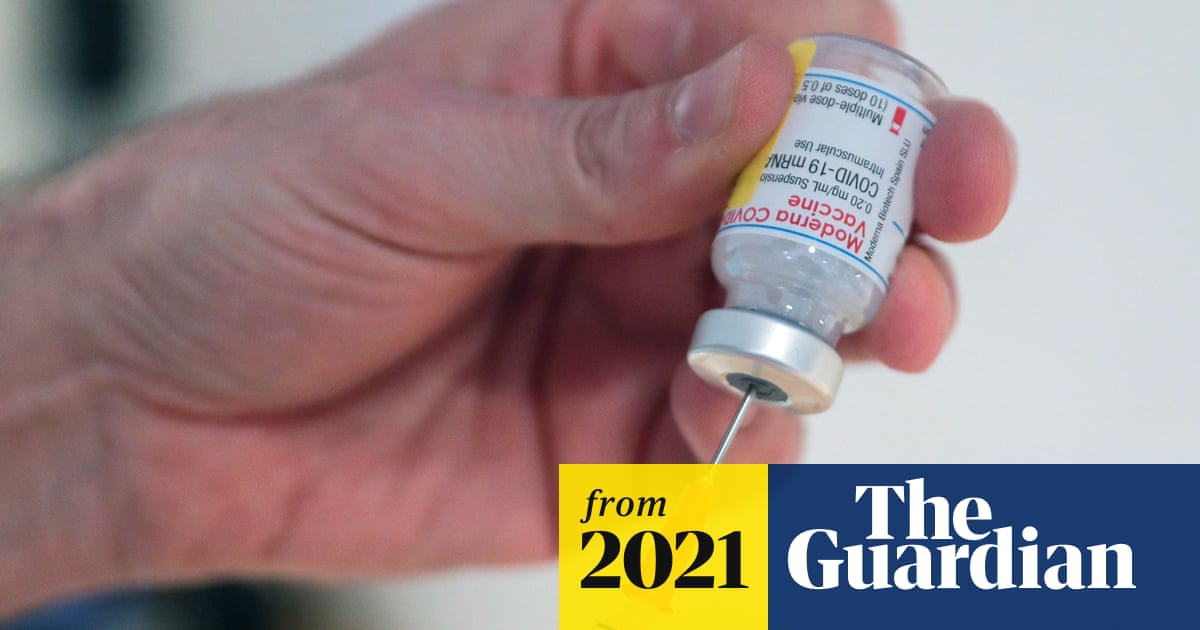The guy in the video is a
doctor who explains what happened to the doctor that died. A quote describing the contents of the video that I forgot to include in my post:
Edited
His age put him smack in the middle of being a poor candidate for any vaccine.
It is awfull, but then we can put it at 8 directly corrolated deaths with 56 million vaccinated?
Why do you guys want to post scare videos? It's like you thrive on it? It's frankly rather wierd.
Lets put that into perspective, again.
56 million vaccinated, 8 deaths can be directly linked to the vaccine.
Meanwhile, the virus itself:
97,268,676 infected, 2,081,227 dead, 69,827,251 recovered, 56,745,289 report ongoing issues.
So nearly 60% of everyone that gets the virus get more issues. but we should worry about less than 100 dead from a vaccine?
The Vaccine is the big bandit here? The vaccine is what will kill you? Just how do you think yourself regarding this? If you get this virus, you will probarly have issues for a long time, even if you don't croak, most people won't croak, but this virus has shown to damage:
COVID-19 can have lasting symptoms that affect many parts of the body. Learn more about the symptoms and effects of long COVID.

www.mayoclinic.org
- Heart. Imaging tests taken months after recovery from COVID-19 have shown lasting damage to the heart muscle, even in people who experienced only mild COVID-19 symptoms. This may increase the risk of heart failure or other heart complications in the future.
- Lungs. The type of pneumonia often associated with COVID-19 can cause long-standing damage to the tiny air sacs (alveoli) in the lungs. The resulting scar tissue can lead to long-term breathing problems.
- Brain. Even in young people, COVID-19 can cause strokes, seizures and Guillain-Barre syndrome — a condition that causes temporary paralysis. COVID-19 may also increase the risk of developing Parkinson's disease and Alzheimer's disease.
COVID-19 symptoms can sometimes persist for months. The virus can damage the lungs, heart and brain, which increases the risk of long-term health problems.
By Mayo Clinic Staff
Most people who have coronavirus disease 2019 (COVID-19) recover completely within a few weeks. But some people — even those who had mild versions of the disease — continue to experience symptoms after their initial recovery.
These people sometimes describe themselves as "long haulers" and the condition has been called post-COVID-19 syndrome or "long COVID-19."
Older people and people with many serious medical conditions are the most likely to experience lingering COVID-19 symptoms, but even young, otherwise healthy people can feel unwell for weeks to months after infection. The most common signs and symptoms that linger over time include:
- Fatigue
- Shortness of breath
- Cough
- Joint pain
- Chest pain
Other long-term signs and symptoms may include:
- Muscle pain or headache
- Fast or pounding heartbeat
- Loss of smell or taste
- Memory, concentration or sleep problems
- Rash or hair loss
Although COVID-19 is seen as a disease that primarily affects the lungs, it can damage many other organs as well. This organ damage may increase the risk of long-term health problems. Organs that may be affected by COVID-19 include:
- Heart. Imaging tests taken months after recovery from COVID-19 have shown lasting damage to the heart muscle, even in people who experienced only mild COVID-19 symptoms. This may increase the risk of heart failure or other heart complications in the future.
- Lungs. The type of pneumonia often associated with COVID-19 can cause long-standing damage to the tiny air sacs (alveoli) in the lungs. The resulting scar tissue can lead to long-term breathing problems.
- Brain. Even in young people, COVID-19 can cause strokes, seizures and Guillain-Barre syndrome — a condition that causes temporary paralysis. COVID-19 may also increase the risk of developing Parkinson's disease and Alzheimer's disease.
COVID-19 can make blood cells more likely to clump up and form clots. While large clots can cause heart attacks and strokes, much of the heart damage caused by COVID-19 is believed to stem from very small clots that block tiny blood vessels (capillaries) in the heart muscle.
Other parts of the body affected by blood clots include the lungs, legs, liver and kidneys. COVID-19 can also weaken blood vessels and cause them to leak, which contributes to potentially long-lasting problems with the liver and kidneys.
People who have severe symptoms of COVID-19 often have to be treated in a hospital's intensive care unit, with mechanical assistance such as ventilators to breathe. Simply surviving this experience can make a person more likely to later develop post-traumatic stress syndrome, depression and anxiety.
Because it's difficult to predict long-term outcomes from the new COVID-19 virus, scientists are looking at the long-term effects seen in related viruses, such as the virus that causes severe acute respiratory syndrome (SARS).
COVID-19 symptoms can sometimes persist for months. The virus can
damage the lungs, heart and brain, which increases the risk of long-term health problems.
But, yeah, the vaccine is evil, and you deny that it works.
GL@HF, it's just the flu!





